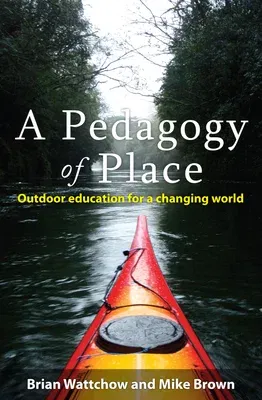This timely book offers an alternative vision for outdoor education
practice. A Pedagogy of Place calls into question some of the underlying
assumptions and 'truths' about outdoor education, putting forward
alternatives to current practice that are responsive to local conditions
and cultural traditions. In this renewal of outdoor education philosophy
and practice, the emphasis is upon responding to - and empathizing
with - the outdoors as particular places rich in local meaning and
significance. Current outdoor education theory and practice is
influenced by cultural ideas about risk and adventure, and by
psychological theories of personal and social development. However, in
recent decades, the professional discourse of outdoor education has made
a noticeable shift which has resulted in a mismatch between theory and
practice: traditional notions of proving oneself 'against' the
challenges of the outdoors are antithetical to the development of an
empathetic relationship with outdoor places. A Pedagogy of Place is the
first of its kind to articulate a renewal of philosophy and practice for
outdoor education that is in keeping with the educational needs of
today's young people as they grapple with considerable social and
ecological changes in a rapidly changing world. The authors draw
extensively on international, national, and local literature, and
provide compelling case studies drawn from the Australian and New
Zealand contexts.

